Head to these 7 offbeat travel destinations in India to recharge and revive
These seven Indian destinations don’t appear on most to-do travel lists. But, head to these vacation spots and step out of your old comfort zone
In the super-busy times we live in, travel works like medicine – and a drug! It slows you down, expands awareness, enhances creativity, provides perspective, and helps connect with others.
Most importantly – travel underlines a willingness to broaden horizons, move in new directions, and bond with yourself better.
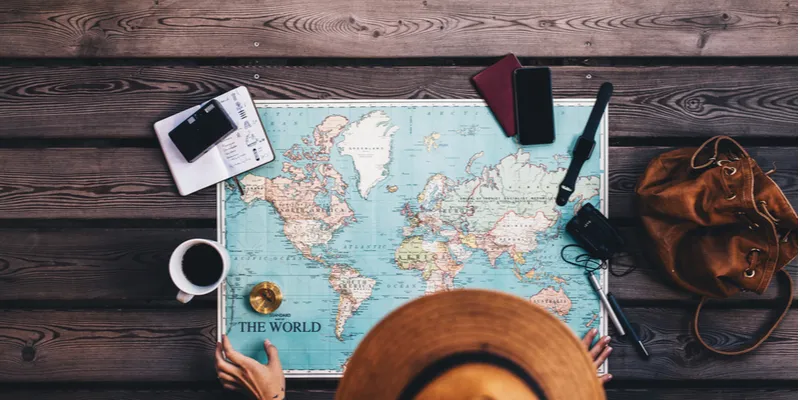
We list seven Indian destinations that don’t appear on most to-do lists. But, we suggest you head for them on long weekends or short breaks.
Lucknow
Slow down in style at Lucknow, Northern India’s foremost cultural and artistic hub. Set along the banks of River Gomti, Lucknow was established by Nawab Asaf ud Daula.
The city, renowned as a centre for Urdu poetry and courtly diction, welcomes you at the Charbagh railway station.
You can’t go back without visiting the Bara Imambara, an architectural wonder that boasts the largest vaulted chamber in the world. Explore the bhool bhulaiya, a complicated series of labyrinths, at your own peril. The Chhota Imambara - with its lovely chandeliers, gilt-edged mirrors and colourful stuccos – is a fine structure.
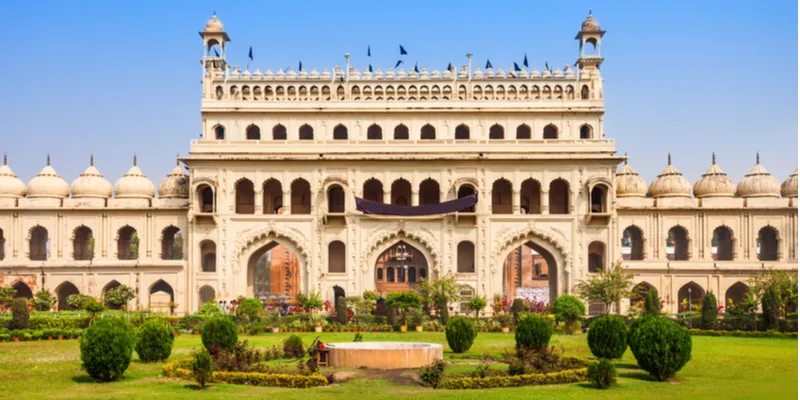
Spend time at Rumi Darwaza, a 60-feet gate said to be identical to an ancient doorway in Constantinople; the beauteous Jama Masjid, the 221-feet-high Clock Tower (built in 1887), the scarred remains of the Residency (check out the sound and light show), and the imposing Kaiserbagh Palace Complex.
Don’t go back without sampling the many kebabs - kakori, galouti, shami, boti, patili-ke, ghutwa, and seekh!
Shekhawati
The arid land of Rajasthan is set off to perfection by a plethora of colours in Shekhawati. Named for its ruler, Rao Shekha, this region is brimful with towns where havelis display architectural and cultural wealth in an “open art gallery” of sorts.
Most buildings here date from 18th century to early 20th century, and the many frescoes, mostly harping on mythological themes, religious scenes and family life, bring alive the warp and weft of everyday life in Rajasthan.
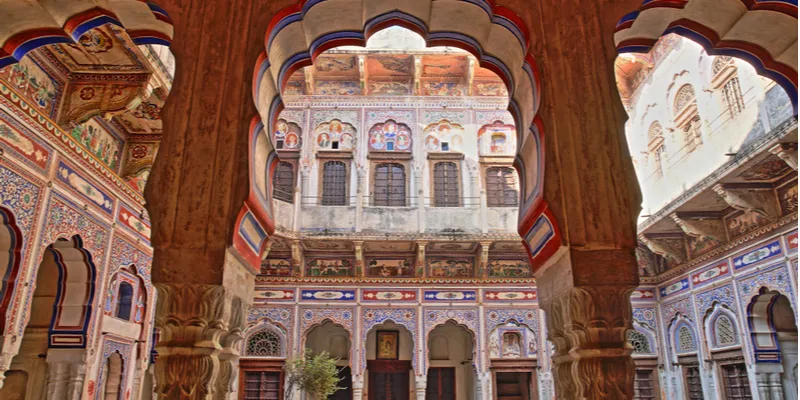
The fine art, tucked away in out-of-the-way houses in tiny towns seems out of place, but not when you realise that Shekhawati’s towns were important trading posts on the caravan routes from Gujarati ports from the 14th century.
Apart from exploring the exquisite paintings, try the cuisine - papad mangodi ki subzi and spicy mutton - lal maas or hari mirch ka maas - with piping hot rotis!
Amritsar
Founded in 1577 by Ram Das, the fourth Sikh guru, Amritsar - literally “holy pool of nectar” - is home to the spectacular Golden Temple, Sikhism’s holiest shrine and one of India’s most serene sights.
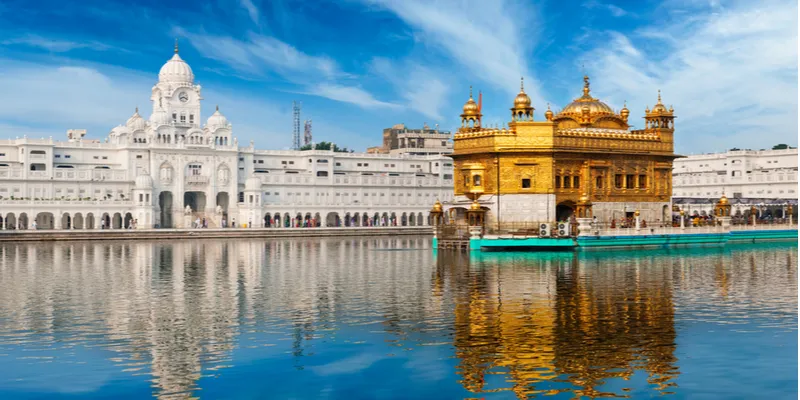
A trip to Amritsar is mandatory, if only for Harmandir Sahib, better known as Golden Temple. If the gorgeous silhouette of the structure, its reflection in the placid waters, and the continuous chanting of Guru Granth Sahib don’t bring you peace, nothing else will.
Located on the main Grand Trunk Road (built by Sher Shah Suri) from Delhi to Amritsar, and connecting to Lahore in Pakistan, Amritsar showcases an introverted planning system. The central walled city was in the 17th and 18th century delineated into katras, self-styled residential units that provided an extraordinary defence system when under attack.
Rewind to India’s bloody struggle for independence at Jallian Wala Bagh where General Dyer’s decision led to a seminal event in the British rule of India. And stand by for pomp and pageantry at the Beating Retreat and Change of Guard at Wagah, the international border between India and Pakistan.
Amritsar is manna for foodies. Forget calorie counting and gorge on chole kulche, Amritsari macchi and jalebis, rounding it all off with thick sweet lassi.
Mandvi
With a coastline of over 7,000 km, it's no surprise that India is chock-a-block with beach destinations. Located on the banks of the Rukmavati River, Mandvi was established in the late 16th Century and gained importance as an important trading point for Mughal India.
Merchants from here travelled to Zanzibar, trading cotton, rice, salt and pottery, and the Kutchi town continues to be known for its 400-year-old ship building centre.
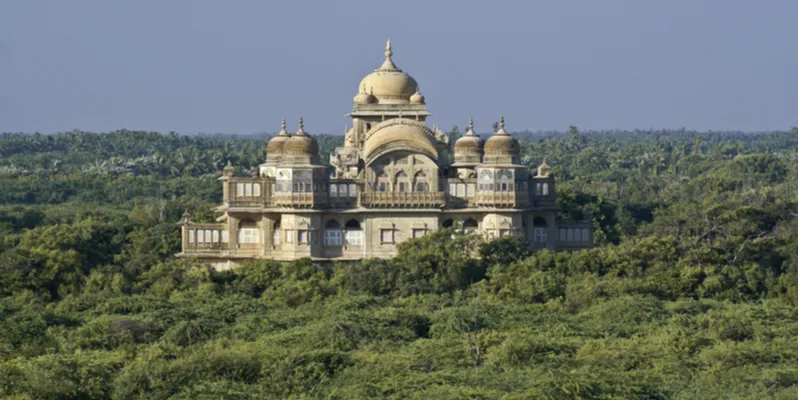
Explore the picturesque Vijay Vilas Palace (now also a heritage hotel), set amid beautifully laid-out gardens. Visit the Wind Farm Beach and Windmills (Asia’s first windmill project set up in 1983). Stop off at the Bandhni Bazaar to pick up some Bandhani (tie-dye) saris and taste a dabeli (said to have been created here).
Jodhpur
Udaipur and Jaipur may be Rajasthan’s tourist magnets, but Jodhpur is close to muscling them out. Founded by Rao Jodha, the leader of the Rathore clan, in 1459 AD, the busy desert city is suddenly Rajasthan’s most vaunted.
In the Sun City, everything pays obeisance to Mehrangarh, the muscular fort that straddles a rocky ridge. Around it, a jumble of old cubical houses – most of them painted blue - stretch out as far as the eye can see.

Mehrangarh is one of India’s best preserved forts, and sets the tone for exploring the rest of the city. The old city is a tangle of winding lanes, small squares, and little shops that house much more than you can imagine.
Discover the royal way of life at the grand Umaid Bhavan, which now houses a heritage hotel, a museum and the Maharaja’s royal residence. Nearby, Jaswant Thada, a white marble edifice built in the memory of Maharaja Jaswant Singh II, offers moments of peace and quiet.
Plan a village safari – you can enjoy tea with Bishnois, get an eyeful of blackbucks and see how a potter crafts pots. A trip to nearby Salawas, 22 km from Jodhpur, will leave you rich in handcrafted colourful dhurries. The busy market area in the city seems to be chaotic, till you realise the order in the chaos. Don’t miss the bazaar adjoining the clock tower – it’s said that there’s nothing you won’t be able to get here!
Binge on the spicy Mirchi Vada and cool things down with the Mawa Kachori or Makhaniya Lassi.
Coonoor
Nestled in the Nilgiri Mountains, this pretty town is surrounded by undulating mountains, and plentiful tea and coffee plantations. Head here for a holiday that’s not action-driven.
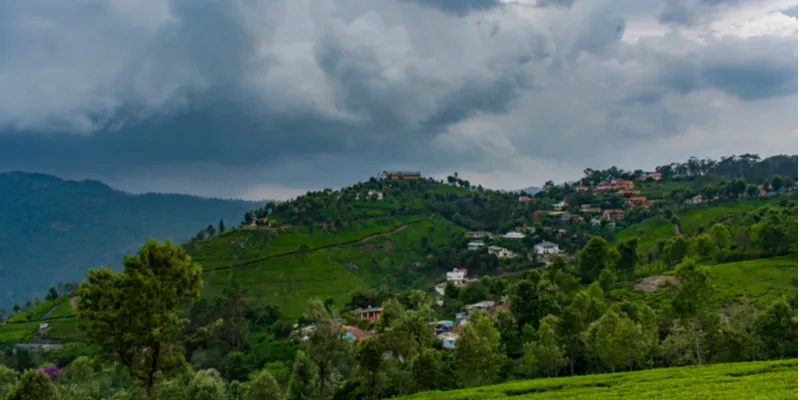
Located at an altitude of 1,850m above sea level, Coonoor is the ideal place to chill. What else could you possibly do in a town where the main attraction is Sim’s Park, a small botanical garden that hosts an annual fruit show every summer?
Once you’re done with that, the only other option is to walk, jog or trek. And do it all over again. Head for Lamb’s Rock (overlooking Coimbatore plains), Lady Canning’s Seat, Dolphin’s Nose (with a superlative view of the Nilgiris), or Law Falls (a majestic waterfall).
At Droog, about 13 km away, explore the ruins of a 16th Century fort once used by Tipu Sultan. The many grassy meadows are ideal for trekking, bird watching, and picnics.
Cherrapunjee
This town should have been India’s answer to Forks, the drenched-in-rain small town in Washington state that shot to fame as the setting of Stephenie Meyer’s Twilight series. After all, didn’t we grow up on the factoid that Cherrapunjee received the highest rainfall in the world?
On that front, the “land of oranges” may be one of your biggest letdowns. Despite the perennial rainfall (even though nearby Mawsynram currently holds the record for being the wettest place on earth), Cherrapunjee is a far cry from being a lush and rich green town; on the contrary, it’s dry, parched and dehydrated.
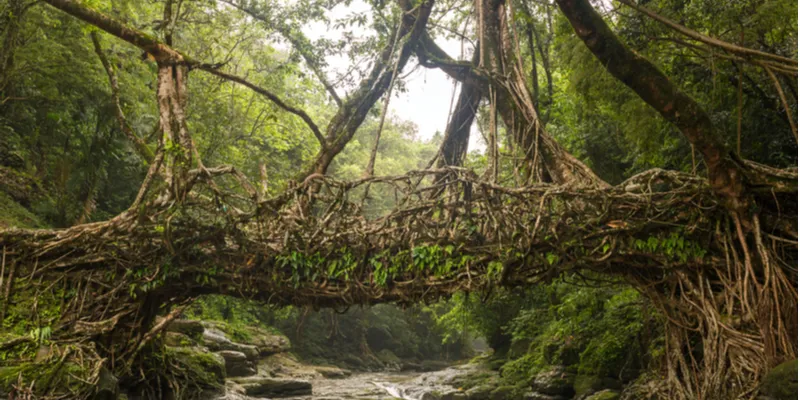
But don’t despair for the world-famous living bridges will make up for the disappointment. Over centuries, residents have shaped growing roots of trees into large bridges that can be used for over 500-600 years.
Don’t miss Mawlynnong, a village in the East Khasi Hills that’s better known as Asia’s cleanest village.
And when in Meghalaya, eat like the residents. Try jadoh (rice with minced pork cooked in black sesame paste), dohneiihong (pork curry cooked in black sesame), jhur sideh (mixed fried vegetables), and muli khleh (radish salad seasoned with different herbs).



1566563946286.png?fm=png&auto=format&h=100&w=100&crop=entropy&fit=crop)








